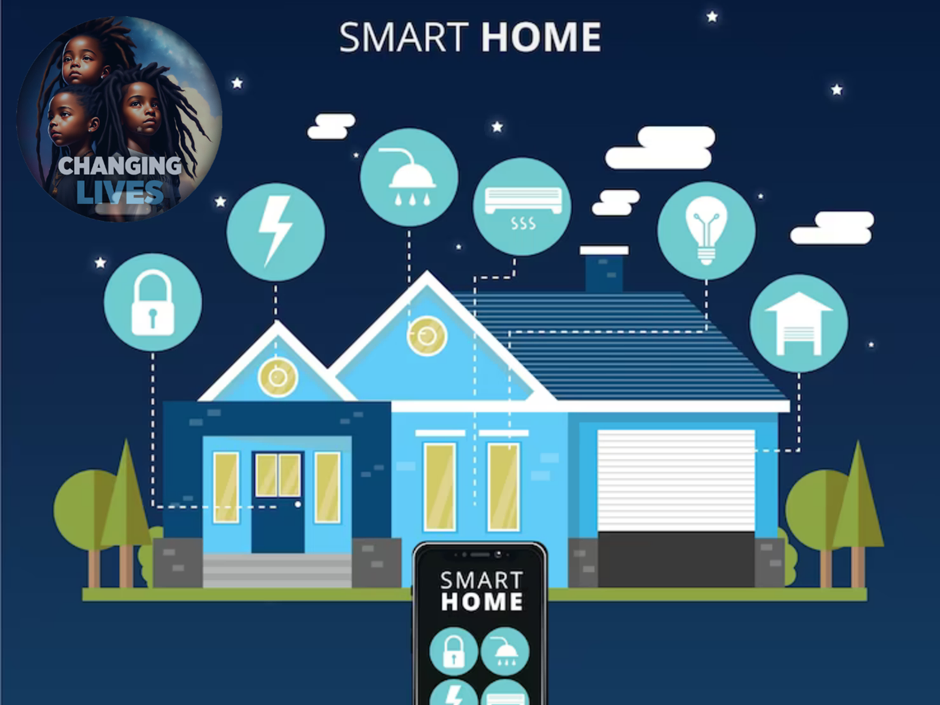Smart homes were supposed to make life easier—but for many, they’ve become a privacy nightmare, a maintenance hassle, and a security risk.
Now, a growing movement of tech experts, cybersecurity professionals, and even former Silicon Valley engineers are ripping out their smart speakers, ditching cloud-connected gadgets, and embracing “dumb” homes—and they’ve never been happier.
This article reveals:
✔ The shocking privacy risks of Alexa & Google Home
✔ Why smart homes are getting less convenient over time
✔ The “dumb home” alternatives that actually work better
✔ How to detox your home from surveillance tech
1. The Dark Side of Smart Homes: Why Experts Are Leaving
🎙️ Your Smart Speaker is Always Listening
-
Amazon admits Alexa records accidental conversations (even after “wake word” failures).
-
Google Home uses recordings to personalize ads.
-
Apple’s Siri was caught sending private audio to contractors.
🔓 Your Devices Are a Hacker’s Dream
-
Hackers can:
-
Spy through smart cameras (like Ring and Nest).
-
Unlock smart doors (August, Yale locks have been hacked).
-
Trigger false fire alarms (via smart smoke detectors).
-
💸 You’re Paying for a Broken Promise
-
Smart homes were supposed to save time—but firmware updates, dead batteries, and Wi-Fi dropouts add more chores.
-
Example: Changing a “smart lightbulb” now requires an app, hub, and login—when a dumb switch takes 2 seconds.
2. The “Dumb Home” Revolution: What Tech Insiders Use Instead
🏡 The 5 Rules of a “Dumb Home”
-
No always-listening microphones (goodbye, Alexa).
-
No cloud-dependent devices (if it needs Wi-Fi to work, skip it).
-
No apps for basic functions (lights should work with a switch).
-
No monthly fees (smart locks that require subscriptions = scam).
-
No data collection (local control only).
🛠️ Dumb Home Upgrades That Actually Help
| Smart Device | “Dumb” Alternative | Why It’s Better |
|---|---|---|
| Alexa/Google Home | Basic stereo system | No spying, no updates |
| Smart Bulbs (Philips Hue) | Dimmable LED bulbs + analog switch | Always works, no app needed |
| Nest Thermostat | Programmable Honeywell thermostat | No internet required |
| Ring Doorbell | Peephole camera + local storage | No monthly fees, no hackers |
3. How to Detox Your Home from Smart Tech
Step 1: Ditch the Smart Speaker
-
Replace with: A Bluetooth speaker or old-school radio.
-
Bonus: Use Home Assistant (local-only automation) if you must have voice control.
Step 2: Kill Cloud Dependence
-
Smart plugs? Switch to dumb timers.
-
Smart locks? Use keypad deadbolts (no Wi-Fi).
Step 3: Go Local for Security
-
Cameras: Eufy (local storage) or dummy cameras (fake but effective).
-
Alarms: Hardwired systems > “smart” sensors.
Step 4: Opt Out of Data Collection
-
Block tracking: Use a Pi-hole to stop smart devices from phoning home.
-
Isolate IoT devices on a guest Wi-Fi network.
4. Who’s Leading the “Dumb Home” Movement?
🔐 Edward Snowden
-
Uses a dumb phone, avoids Alexa/Google.
-
Quote: “Your ‘smart’ TV is the worst spy in your house.”
💻 Former Silicon Valley Engineers
-
Many now use “light” smart tech (like Lutron Caseta switches)—but avoid cloud-dependent gadgets.
🏡 Minimalist & Prepper Communities
-
Prioritize reliability over convenience.
-
Example: A hand-crank radio beats a smart speaker in a blackout.
5. Will “Dumb Homes” Become the New Normal?
📉 Smart Home Sales Are Slowing
-
Why? People are tired of:
-
Privacy scandals (Amazon Ring sharing data with police).
-
Forced obsolescence (Google killing Nest Secure).
-
Subscription creep (paying $10/month to unlock your own door).
-
🔄 The Pendulum is Swinging Back
-
Analog vinyl outsold digital CDs in 2023—will homes follow?
-
Companies like Framework (repairable tech) are booming.
Final Verdict: Try a “Dumb Home” for a Week
You might be shocked by:
✅ How much faster things work without apps.
✅ How much quieter your home feels without always-on mics.
✅ How much safer you feel without hackable gadgets.
